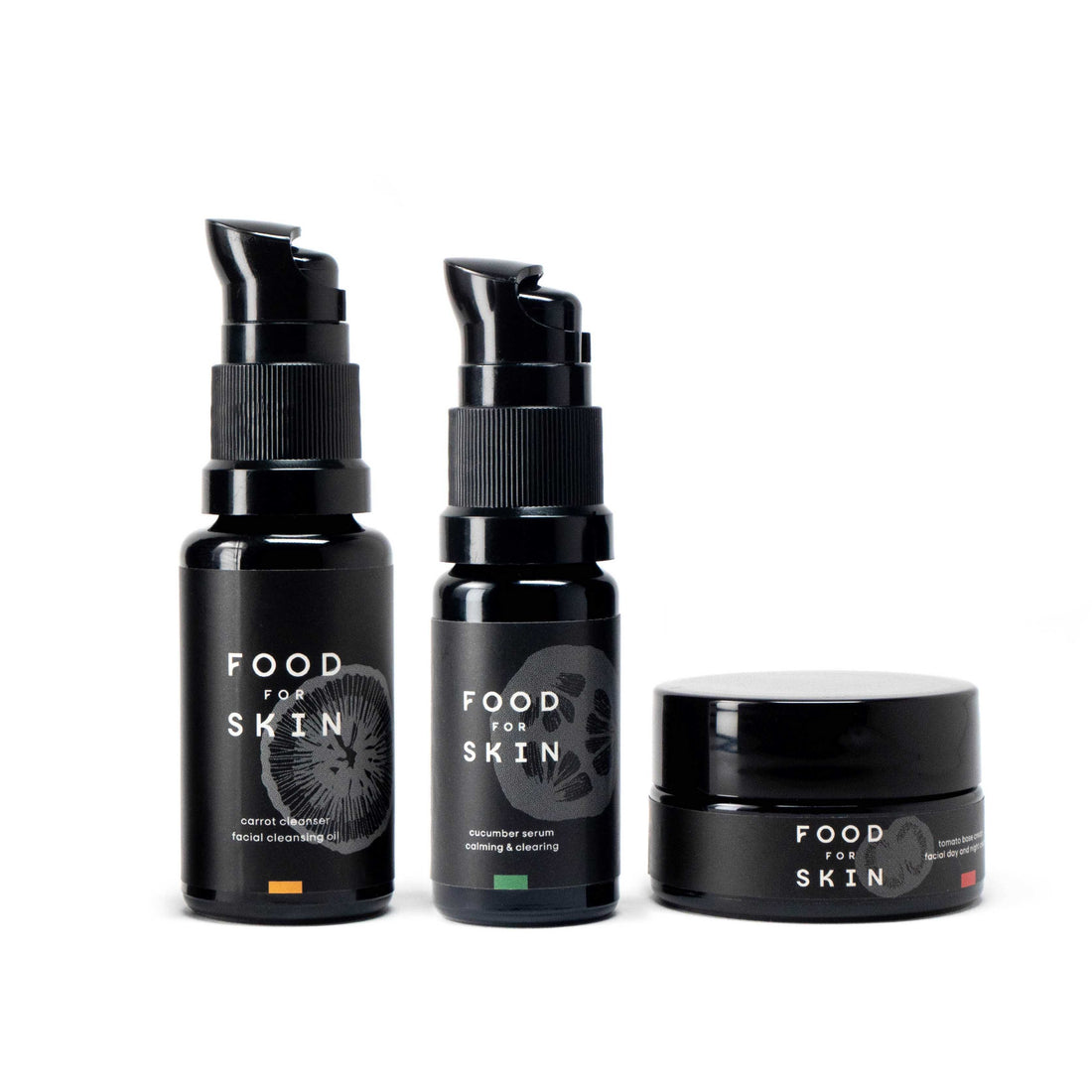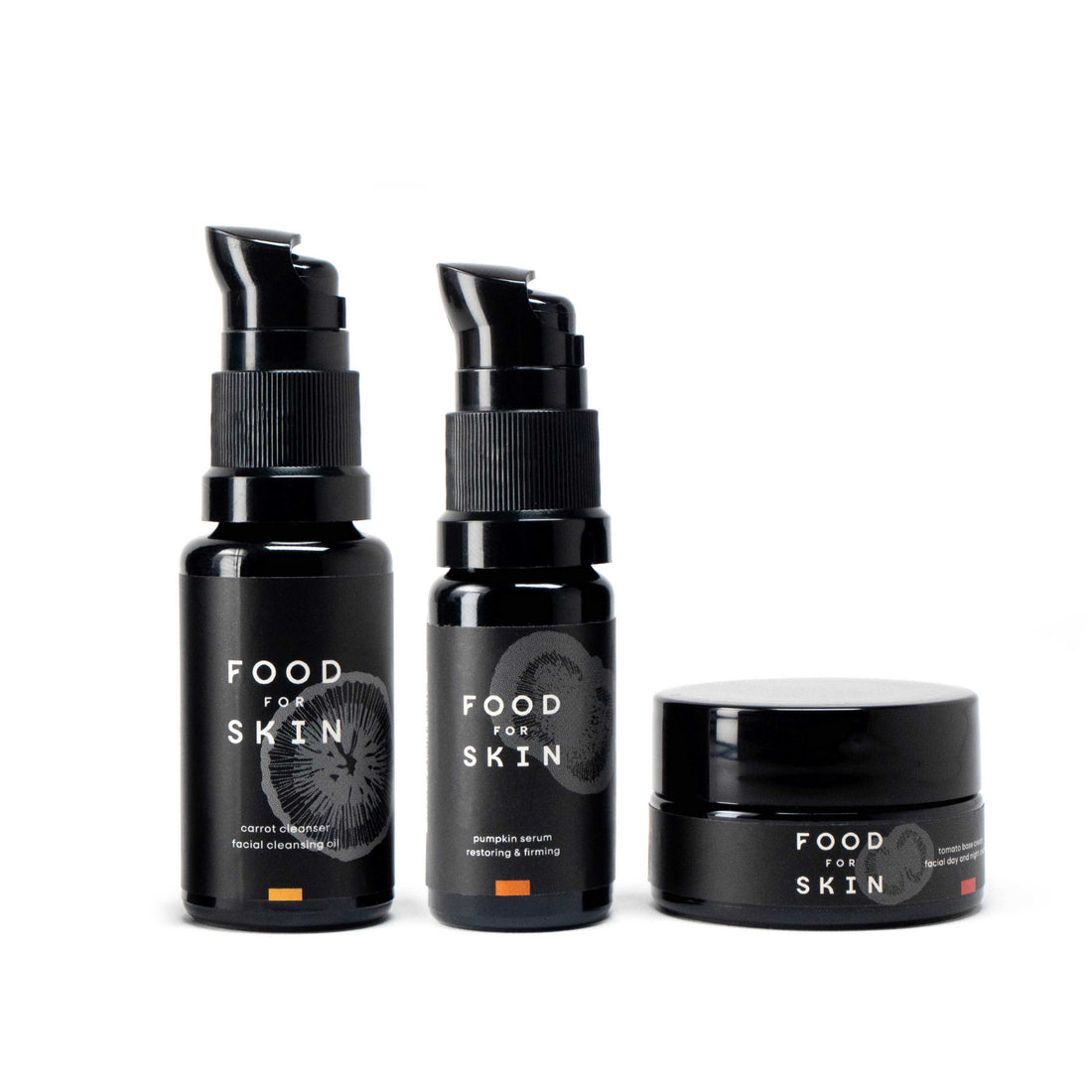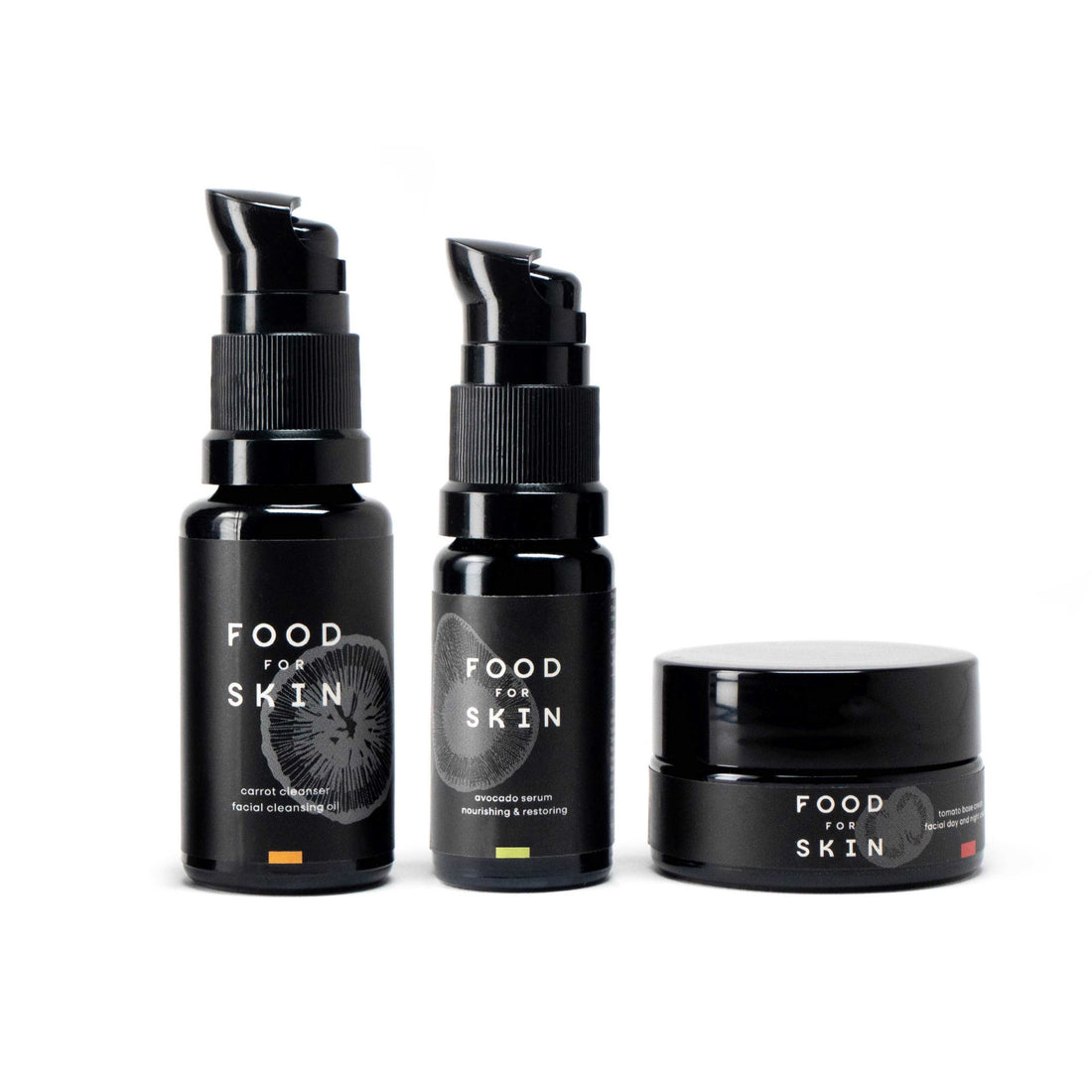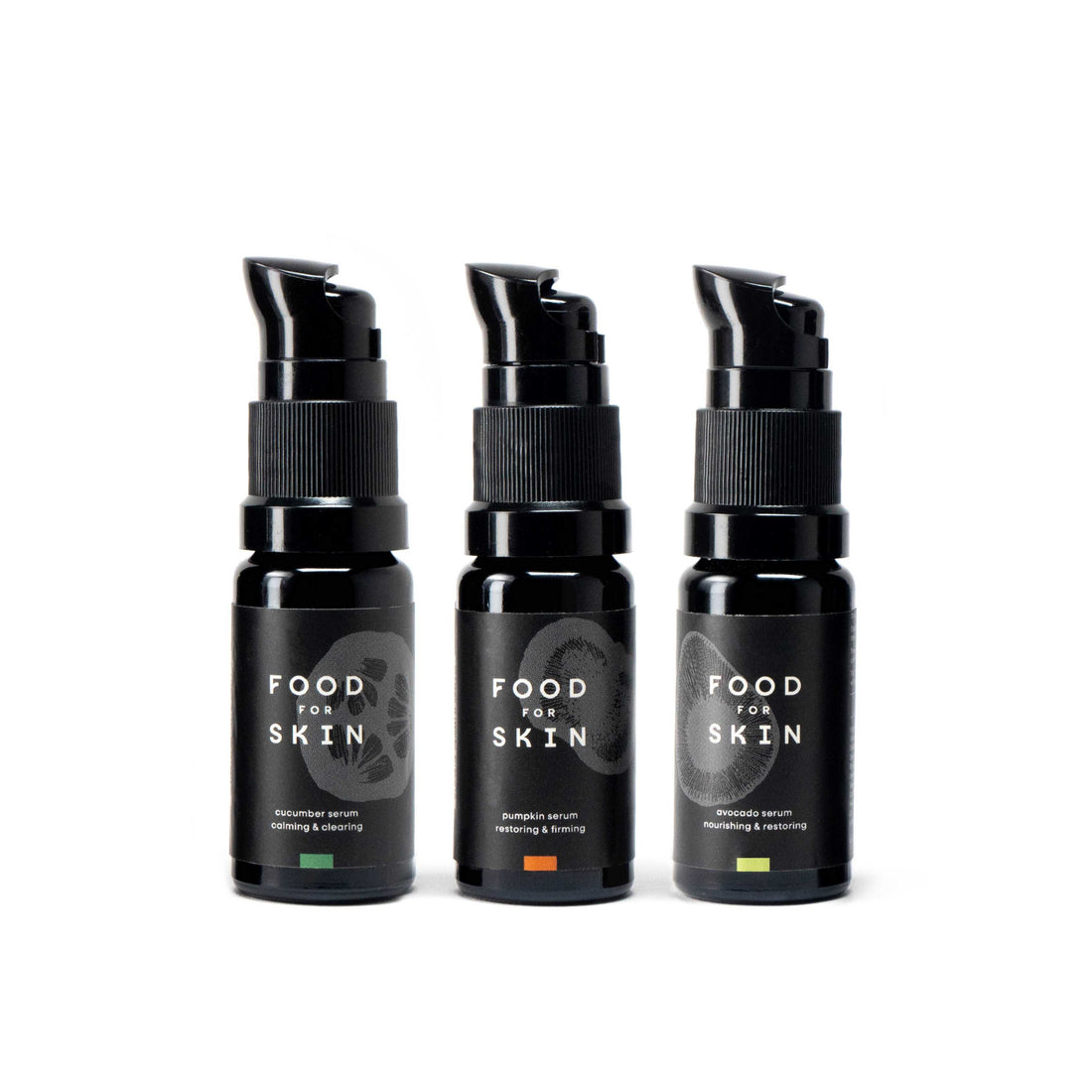Let's start by saying that you don't always have the same skin type or that your entire skin is the same skin type. The skin can have different needs, depending on the weather, your living conditions (stress, alcohol, medication), humidity, hormones or other factors. Some people have a greasy forehead, but dry cheeks. That's why we prefer not to talk about a skin type, but about the skin condition at a certain moment. After all, the skin changes as we get older, the weather changes and your living conditions.
What to do against oily skin
But if you have (partly) oily skin, what can you do about it? You’ve probably been told for years that you should avoid products with oil. But is that really true? Or is it just a persistent myth? In this blog, we’ll dive deeper into this question and look at three important aspects: the role of oils in skincare, the difference between different types of oils, and the influence of age on the skin.
Face oil and skin oil; what does it do for you?
The idea that oil makes oily skin even oilier seems logical. But skin care is more complex than that. Some oils can help regulate sebum production (the skin’s natural oil). When your skin produces too much sebum, it can lead to a shiny face and clogged pores. It may sound counterintuitive, but certain oils, like jojoba oil, closely resemble your skin’s natural sebum. Using these oils can trick your skin into thinking it has enough oil and stop overproducing it. In this case, it can actually help to use an oily product, even if your skin is naturally oily.
Cucumber Seed Oil is a super fine oil for oily skin. It is a quickly absorbed lightweight oil that does not linger heavily on the skin. This makes the Food for Skin Cucumber Serum, for example, very suitable for oily skin conditions. Cucumber seed oil contains alpha linolenic acid, which inhibits inflammation in the skin.
Choose the right oil for your face
Not all oils are created equal, and some may work better for oily skin than others. Lightweight, noncomedogenic oils like hemp oil, squalane, or grapeseed oil won’t clog pores and can actually help moisturize without leaving your skin feeling greasy. On the other hand, heavier oils like coconut oil or flaxseed oil can clog pores and potentially lead to breakouts for those with oily skin. So it’s important to choose the right type of oil for your skin type. This doesn’t necessarily mean you have to avoid all oily products, but you should be aware of which ones you choose.
A nice oil-based product with grape seed oil is for example the Food for Skin – Mineral sunscreen SPF30 . A sun protection based on a mineral factor that does not cause pimples.
Caring for oily skin through the years
As you age, your skin changes. Among other things, due to TWEL, which stands for Transepidermal Waterloss. Around forty, the skin can lose elasticity and moisture. Even if you have oily skin, this does not automatically mean that you do not need extra hydration. However, it is not possible to bring moisture into the skin. This is because water, creams and serums cannot penetrate that deeply into those skin layers. You can help protect the skin from losing moisture. Oils can be a valuable addition to your skincare routine, because they apply a thin layer to the skin, which slows down the evaporation of moisture from the skin. A lack of moisture can lead to increased sebum production, because your skin is trying to protect itself from drying out. It is therefore important to keep a close eye on how your skin changes and adjust your skincare routine accordingly.
What helps against oily skin? Our conclusion
The idea that oily skin can’t use oily products is a myth . The key is choosing the right oil for your skin condition. Light, non-comedogenic (that won’t clog your skin) oils can actually have a positive effect on sebum production and moisture retention in your skin. So, experiment with different oils and find what works best for your skin!
If you are in doubt, choose the Food for Skin trial set with 3 beautiful different facial serums . Use 1 of the oils for a longer period of time to compare the results. Since your skin condition can change throughout the year, it is certainly a good idea to alternate your serum every now and then depending on your skin's needs.









